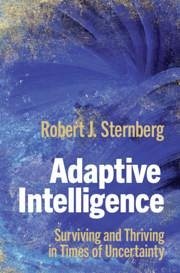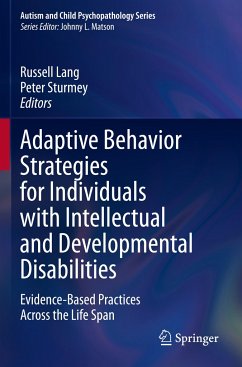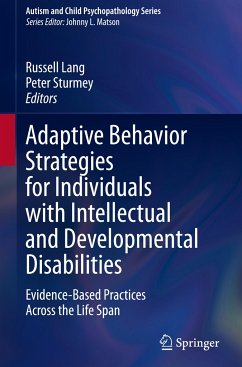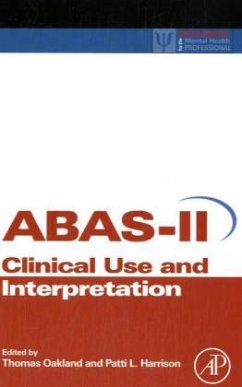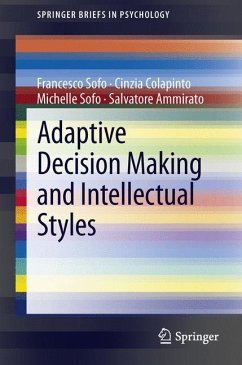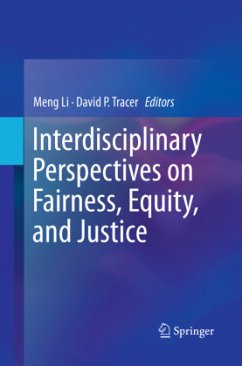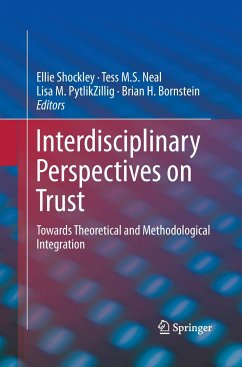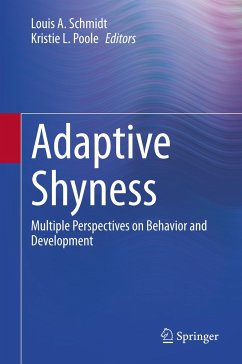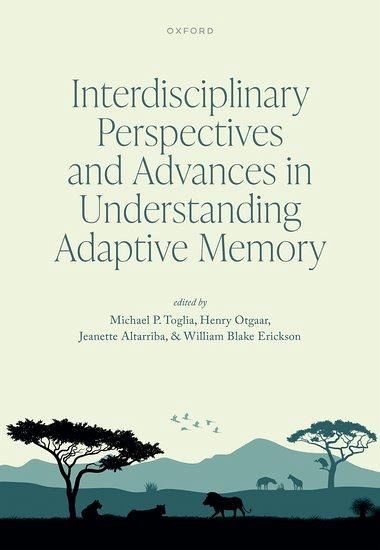
Gebundenes Buch
Interdisciplinary Perspectives and Advances in Understanding Adaptive Memory
Versandkostenfrei!
Versandfertig in über 4 Wochen

PAYBACK Punkte
55 °P sammeln!




Interdisciplinary Perspectives and Advances in Understanding Adaptive Memory presents the latest theories and research on what is known about adaptive memory, often referred to as survival memory.
Dr. Michael Toglia, Cornell University, has received SUNY Chancellor's awards for Excellence in Teaching and in Scholarship, served 8 years as Executive Director of the Society for Applied Research in Memory and Cognition and visited Mexico as a Fulbright Senior Specialist. He has published extensively on adult cognition topics and lifespan themes in eyewitness memory, including 12 books, most recently Methods, measures, and theories in eyewitness identification tasks. Toglia has considerable experience serving on editorial boards and was an Action Editor for Memory. He holds Fellow status in 6 societies, including the Psychonomic Society and 3 Divisions of APA. Dr. Henry Otgaar, a professor of legal psychology at Maastricht University and KU Leuven, specializes in memory function concerning eyewitness and perpetrator statements. His research explores developmental changes in memory from childhood to adulthood, emphasizing factors like trauma influencing memory illusions. Otgaar actively collaborates with research groups globally and has earned awards for his research and teaching. His current studies focus on false memories in children and adults, eyewitness memory, repressed and traumatic memory, and interviewing techniques. As the Editor of Memory and a member of editorial boards, including Clinical Psychological Science and Journal of Criminal Psychology, Otgaar significantly contributes to the field. Dr. Jeanette Altarriba, University at Albany, SUNY, is Professor of Psychology and Dean of the College of Arts and Sciences, Founder and Director of the Cognition and Language Laboratory, and an internationally recognized scholar in the areas of bilingualism, memory, and emotion. She has published more than 90 peer-reviewed articles and 8 books in her field. Her impact is reflected in the many recognitions she has received from student groups and in receiving both campus and SUNY awards for excellence in teaching, research, and service. More recently, she was recognized as a Collins Fellow for her service and contributions to UAlbany over a sustained period of time. Dr. William Blake Erickson is an associate professor of Psychology at Texas A&M University's San Antonio campus, where he leads the Ecological Research in Cognitive Operations laboratory. His research applying human face recognition to problems related to law enforcement and security interests has produced over 25 published articles and chapters. Active research programs investigate eyewitness memory, forensic imaging, aging, and individual differences. He is also a frequent contributor to the Popular Culture Psychology book series, communicating psychological research and concepts through the lens of such media franchises as Star Trek, Game of Thrones, and Stranger Things.
Produktdetails
- Verlag: Oxford University Press
- Seitenzahl: 456
- Erscheinungstermin: 15. Januar 2025
- Englisch
- Abmessung: 247mm x 179mm x 35mm
- Gewicht: 1025g
- ISBN-13: 9780192882578
- ISBN-10: 0192882570
- Artikelnr.: 71264818
Herstellerkennzeichnung
Libri GmbH
Europaallee 1
36244 Bad Hersfeld
gpsr@libri.de
Für dieses Produkt wurde noch keine Bewertung abgegeben. Wir würden uns sehr freuen, wenn du die erste Bewertung schreibst!
Eine Bewertung schreiben
Eine Bewertung schreiben
Andere Kunden interessierten sich für


